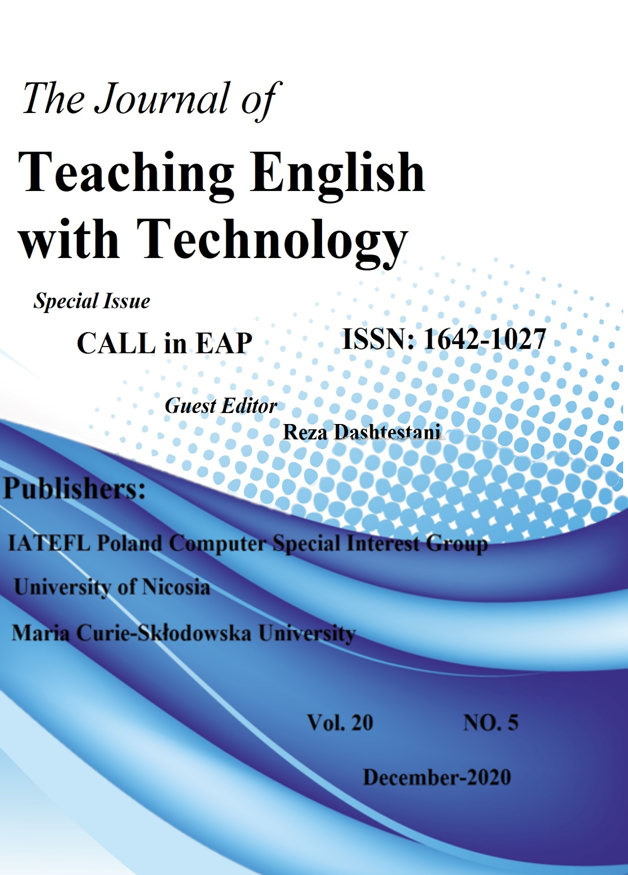MOBILE BETTING – LEARNING BUSINESS ENGLISH TERMINOLOGY USING MALL
MOBILE BETTING – LEARNING BUSINESS ENGLISH TERMINOLOGY USING MALL
Author(s): Ana Balula, Ciro Martins, Marco Costa, Fábio MarquesSubject(s): Foreign languages learning
Published by: IATEFL Poland Computer Special Interest Group and The University of Nicosia
Keywords: business English terminology; English for Specific Purposes; mobile-assisted language learning; CRS; game-based MALL
Summary/Abstract: In the last decades, the focus of ESP teaching has been shifting from the grammatical analysis of technical texts to discourse analysis, and, more recently, to learner-centred approaches. This change is quite challenging and demanding for ESP teachers, in particular regarding the choice of effective teaching and learning methodologies and, consequently, the design of meaningful activities. Furthermore, it is also relevant to rethink educational processes to meet the students’ needs, in particular given the unceasing digital transformation and its societal impact. In this scenario, the ubiquity of mobile-assisted language learning (MALL) was integrated in the design of a teaching and learning strategy, by using an Electronic Classroom Response System (CRS) within a game-based activity to learn Business English Terminology (BET). The activity was first tested in academic year 2014/15, with students enrolled in a Management undergraduate degree at ESTGA – University of Aveiro. Given the results of a preliminary study, the authors decided to undertake an empirical diachronic research (3 academic years), aiming at verifying if the game-based MALL strategy using a CRS promoted the students’ learning success in what concerns i) the identification and use of business English (BE) acronyms and other abbreviations, and ii) the accurate integration of BET in written text. The teaching materials were validated by two former Management students and two specialists (one in ESP and another in English Didactics). A total of 67 students participated in this study and the results of the statistical data analysis – using Pearson’s correlation coefficient and the Friedman test – confirm that the strategy supports the study of BE acronyms and other abbreviations, but their accurate integration in written text needs further study.
Journal: Teaching English with Technology
- Issue Year: 20/2020
- Issue No: 5
- Page Range: 6-22
- Page Count: 17
- Language: English

